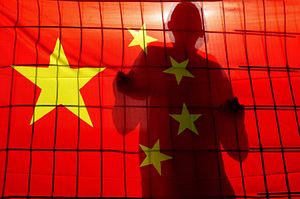A court in China has sentenced three prominent civil rights players this week: activist Zhai Yanmin, former law practice director Zhou Shifeng, and underground church leader Hu Shigen. Zhai was sentenced to a three year suspended sentence; his former colleague, Zhou, was sentenced to seven years and Hu was given seven and a half years. All were detained during the so called “709 crackdown,” a reference to the July 9, 2015 date on which it began. More than 200 activists and lawyers were detained during the sting for their alleged involvement in cases considered sensitive by China’s ruling Communist party.
On August 4, Zhou, the former director and founder of the Fengrui law firm, was convicted of subversion and sentenced to a seven year jail term by Tianjin No 2 Intermediate People’s Court. His law firm was considered by many as one of the most daring in the country, with a long track record of taking on cases that have brought international media attention. Fengrui is best known for its role in a contaminated infant-formula scandal that rocked China in 2008. It has also represented dissident artist Ai Weiwei, the blind civil rights activist Chen Guangcheng, now in the United States, and renowned ethnic Uyghur economist and academic, Ilham Tohti, now serving a life sentence on subversion charges.
“I feel the legal system and democracy of China’s is so much beyond that of the Western rule of law and it’s much beyond that of the United States,” Zhou said in a 10-minute impromptu final statement, which the judge tried to halt on several occasions, according to the South China Morning Post. “I apologize to all 90 million members of the Communist party and I apologize to the Chinese government.”
A day earlier, the same Tianjin court sentenced pro-democracy activist and church leader Hu Shigen to seven and half years in jail, also for subverting state power. Hu was accused of sending another activist, Gou Honggu, across the strait to Taiwan to attend an “Interethnic/Interfaith Leadership Conference” where activists from minority groups (including those from Xinjiang, Tibet, and Inner Mongolia) gathered and planned the overthrow of one party rule and instate democracy in China.
Prosecutors accused Hu of using the underground church that he led to promote Western ideas of democracy through a “color revolution.” The prosecutors said, “He was using the legal vessel of Christianity to do illegal things, to disseminate his subversive thoughts.”
Hu was released from prison in 2008 after serving 16 years in jail for trying to organize memorials for Tiananmen massacre victims. Hu was accused of “organizing and leading a counter-revolutionary group,” promoting “counter-revolutionary propaganda and incitement” and for distributing leaflets about the Tiananmen massacre. In a final statement, Hu said, “I have determined not to participate in any activities that are against the government and the party.”
Zhai Yanmin was also sentenced for subverting state power by the same court on Tuesday, for his continued role in disseminating information about the Tiananmen Square Massacre since 1989.
The sentences are part of the Communist Party’s efforts in containing and intimidating the small human rights advocacy movement. The sentences are widely perceived as politically motivated. According to the BBC, there is no way to independently verify the strength of the evidence for and against the defendants or to determine whether coercion was involved in their pleas.

































